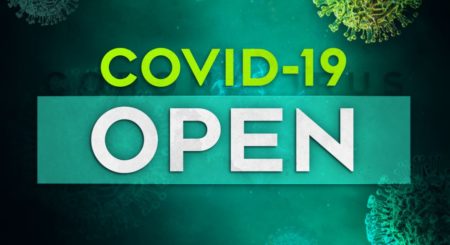Programs, services, and treatments vary. We Level Up FL is a primary mental health center offering co-occurring treatments. We treat the entirety of behavioral health disorders including their secondary corresponding illnesses to improve long-term recovery outcomes. Get a free mental health assessment and find out what treatment options are most suitable for you. We Level Up Florida can help with inpatient primary mental health therapy. Depending on the extent of secondary behavioral disorders such as addiction we can first help assess your condition and thereafter guide you to suitable treatment options.
Drug abuse is a complex disease identified by intense and, at times, uncontrollable drug craving, along with compulsive drug-seeking and use that persists even in the face of devastating consequences.
Addiction affects multiple brain pathways, including those involved in reward and motivation, memory and learning, and inhibitory control over behavior. That is why addiction is classified as a brain disease. Some people are more vulnerable than others to becoming addicted, depending on the interaction between genetic makeup, age of exposure to drugs, and other environmental influences.

While a person initially makes the decision to take drugs, over time, the disease progresses to the point where the brain’s ability to choose is compromised. Seeking and consuming the drug eventually becomes compulsive. People actually end up using drugs against their will. Fortunately, drug addiction is treatable and has the potential to completely change your life for the better.
Without a doubt, you don’t have another opportunity to start over right from the very beginning. However, you have no reason to worry that your efforts to stop drug abuse will yield nothing. Believe that the past is just that – the past and work on building a new future – one that you’ll be sober and clean. Work towards that dream every single day. Let it be a new beginning.
Causes of Drug Addiction
No specific factor can predict if a person will become addicted to drugs. A mixture of factors influences the risk for addiction. The more risk factors a person has, the higher the chance that using drugs can point to addiction. For instance:
Biology
Genetics account for about half of a person’s risk for addiction. Gender, ethnicity, and the presence of other mental disorders may also impact the risk for drug use and addiction.
Environment
An individual’s environment includes many diverse influences, from family and friends to economic status and general quality of life. In addition, factors such as peer pressure, physical and sexual abuse, early exposure to drugs, stress, and parental guidance can greatly affect a person’s possibility of drug use and addiction.
Development
Genetic and environmental factors interact with crucial developmental stages in a person’s life to influence addiction risk. For example, although taking drugs at any age can lead to addiction, the earlier that drug use begins, the more likely it will advance to addiction.
Physical Signs of Drug Abuse
- Bloodshot or glazed eyes
- Dilated or constricted pupils
- Abrupt weight changes
- Changes in hygiene
- Dental issues
- Skin changes
- Problems sleeping or sleeping too much
Behavioral Signs of Drug Abuse
- Increased aggression or irritability
- Changes in attitude/personality
- Lethargy
- Depression
- Sudden changes in a social network
- Dramatic changes in habits and/or priorities
- Involvement in criminal activity
Drug Addiction and COVID 19
A person suffering from drug addiction is more likely to get severely ill from COVID-19. Individuals who use drugs may also have underlying medical conditions that put them at increased risk for severe illness from COVID-19. Also, they may have concerns and questions related to their risk. Additionally, recent data and reports show that deadly drug overdoses in the United States have been increasing before and during the COVID-19 pandemic. This data is from the Center for Disease Control and Prevention [1].
People who use drugs and live in group settings or who gather with others are at increased risk of danger to the virus that causes COVID-19. People with underlying medical conditions, such as substance use disorder, chronic lung disease, chronic liver disease, or serious heart conditions, are more likely to get seriously ill from COVID-19. We know that drug use can have serious effects on the body. For instance:
- The use of opioids can induce slow breathing and even result in ineffective breathing, leading to decreased oxygen in the blood, brain damage, or death.
- Using stimulants, such as cocaine, amphetamine, and methamphetamine, can cause acute health problems such as heart attacks, stroke, rhythm, seizures, and abnormal heart, as well as more chronic conditions, such as lung or heart damage.
- The use of drugs by vaping or smoking (for example, crack, heroin, marijuana, cocaine) can cause chronic obstructive pulmonary disease (COPD), asthma, and other lung conditions worse.
- Other conditions that impair the immune response, such as HIV, are more prevalent among people who use drugs, especially those who inject drugs.

Can Drug Addiction Be Treated?
Yes. People who get treatment and stick with it can stop using drugs. They can change their lives so they don’t go back to taking drugs. But they have to try hard and follow the treatment program thoroughly and honestly. Recovery from addiction means you have to stop using drugs and learn new ways of thinking, feeling, and dealing with problems.
Treatments for Drug Addiction
There are many possible options in treating drug addiction, including:
- Behavioral counseling
- Medication
- Medical devices and applications used to treat withdrawal symptoms
- Evaluation and treatment for co-occurring mental health issues such as depression and anxiety
- Long-term follow-up to prevent relapse
A series of care with a personalized treatment program and follow-up options can be critical to success. Treatment should include both medical and mental health services, as needed. Follow-up care may include community- or family-based recovery support systems.
Find the Primary Mental Health with Co-Occurring Addiction Treatment You Need
Helping yourself or a loved one takes education, patience, and empathy. And it all starts by learning about drug abuse and discussing it with someone who has the knowledge and expertise. Someone who understands the struggle. Our friendly mental health specialists won’t give up on you. Call us now at We Level Up FL to talk about it. We have a 24/7 hotline that is ready to assist you.
Inpatient medical detox and residential primary addiction treatment may be available at our affiliated facility at Level Up West Palm Beach Rehab. For some primary behavioral health treatment clients, medical detox and or addiction rehab may be required first. If you have a co-occurring severe substance abuse diagnosis, please contact us prior to beginning inpatient mental health therapy. Treatment services may vary. Please call us to learn which treatment options are most suited for your individual needs.
Sources
[1] Center for Disease Control and Prevention – https://www.cdc.gov/drugoverdose/resources/covid-drugs-QA.html?CDC_AA_refVal=https%3A%2F%2Fwww.cdc.gov%2Fcoronavirus%2F2019-ncov%2Fneed-extra-precautions%2Fother-at-risk-populations%2Fpeople-who-use-drugs%2FQA.html